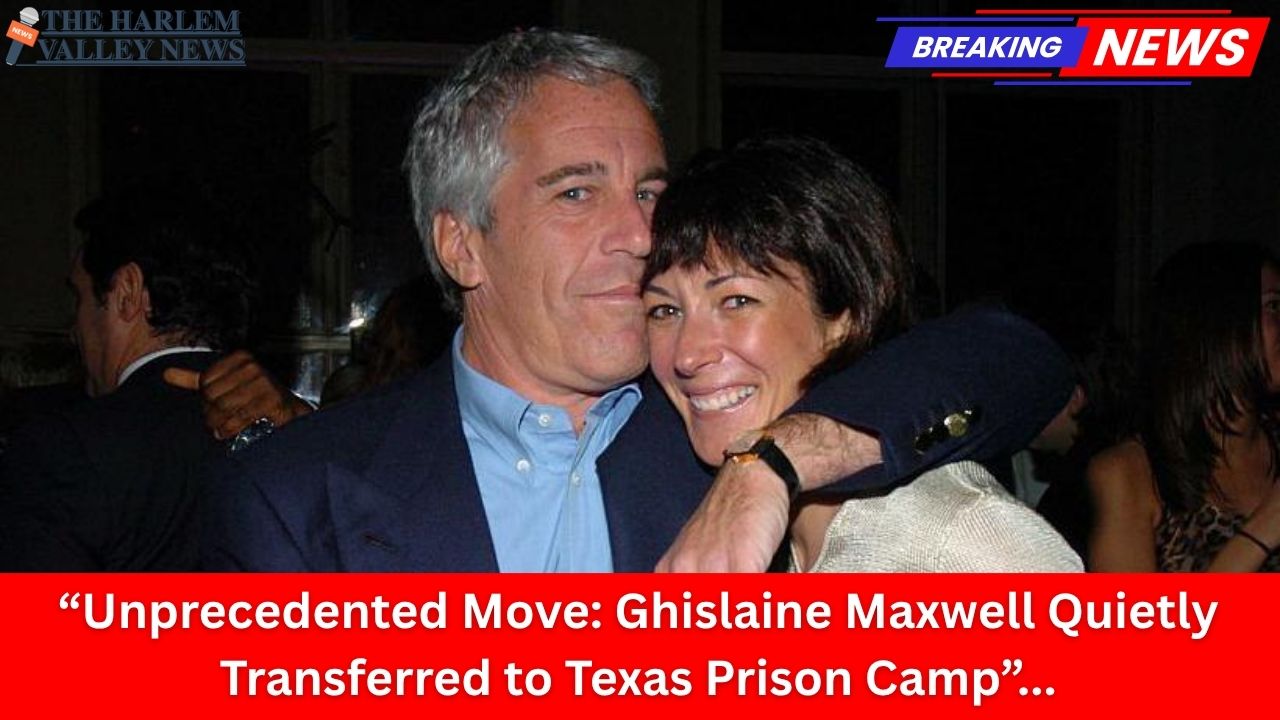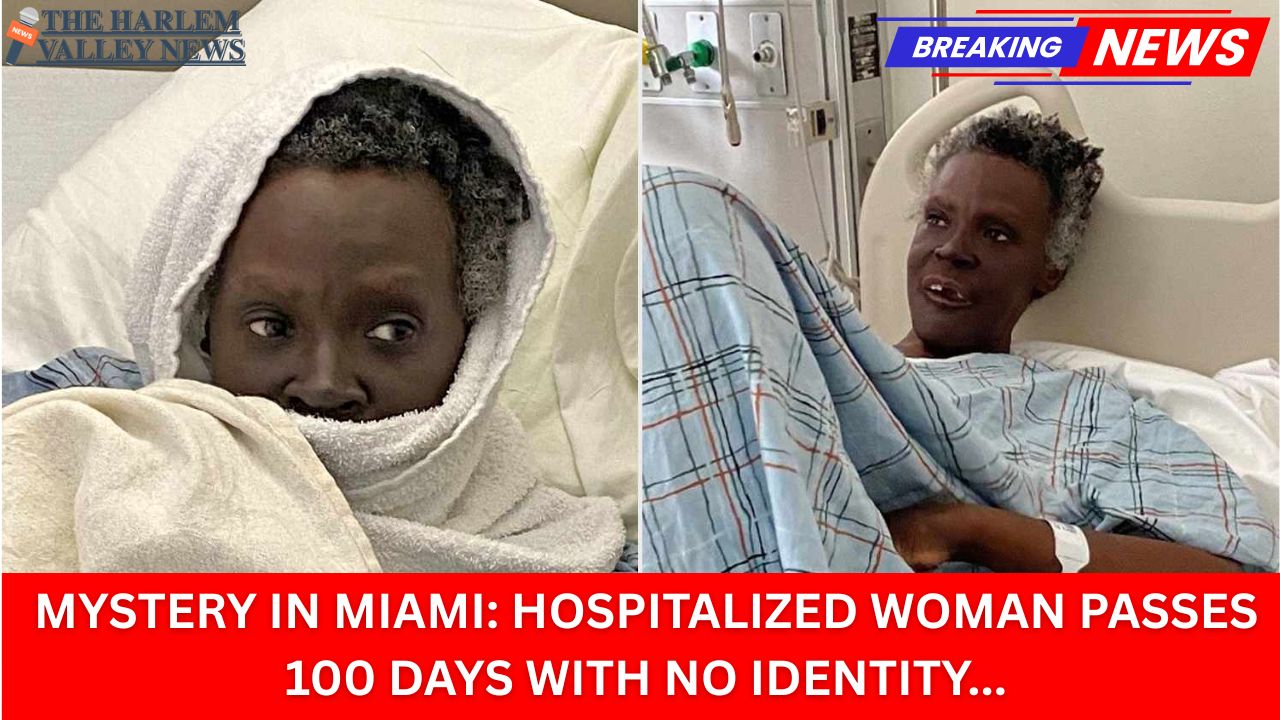Bryan, Texas, US:
In a dramatic and highly unusual move, Ghislaine Maxwell, the long-notorious associate of Jeffrey Epstein, has been transferred from her previous facility in Florida to a minimum-security federal prison camp in Bryan, Texas. Prison consultants and legal experts are calling the transfer “unprecedented,” especially considering the high-profile nature of Maxwell’s criminal conviction and ongoing legal battles.
A Mysterious Midnight Transfer
The decision to move Maxwell, who is serving a 20-year sentence for sex trafficking and grooming minors as part of Epstein’s network, remains shrouded in secrecy. The late-night transfer was conducted quietly, away from media glare and public scrutiny. Unlike typical inmate relocations, which are scheduled and logged well in advance, Maxwell was reportedly removed from her Florida facility under the cover of darkness, placed in a van, and driven to her new destination without the involvement of US Marshals—a procedure described by prison insiders as exceedingly rare.
Prison consultant Holly Coleman commented on the matter, noting, “I’ve never seen this in my life. By her being put in a van and driven quietly in the dark of night, it’s highly unusual. They wanted complete control of this, and didn’t want to put it out to the usual authorities.” This hush-hush maneuver has left many questioning the motivations behind the Justice Department’s actions.
Why Bryan, Texas?
Maxwell now resides at the Federal Prison Camp in Bryan, a facility known for its minimal security, open-dormitory style housing, and low staff-to-inmate ratio. The prison is home to nonviolent and low-risk offenders, including a handful of other well-known inmates such as Elizabeth Holmes, the Theranos founder, and reality TV personality Jen Shah.
Unlike higher-security federal prisons, Bryan offers relative freedom of movement and few physical barriers, such as fencing or barbed wire. While many might see this as a significant downgrading of Maxwell’s confinement, prison consultant Sam Mangel argues, “Considering her circumstances, this is the best option for her.” Nevertheless, the move has provoked outrage among victims’ advocacy groups, who argue that Maxwell’s relocation to a less restrictive environment amounts to special treatment.
Tensions, Speculation, and Timing
Adding to the intrigue, Maxwell’s transfer took place just days after she met privately with Deputy Attorney General Todd Blanche at a US Attorney’s office in Tallahassee. The content of their meetings remains undisclosed, and the Justice Department has not provided a public explanation for the transfer.
The timing has sparked speculation. Some believe Maxwell may be cooperating with federal authorities regarding previously sealed Epstein case files. Maxwell’s attorney claims she answered all questions put forth by the Department of Justice during her meeting, but specifics remain guarded. Meanwhile, rumors swirl that she may be willing to testify before Congress, possibly seeking immunity in exchange for her cooperation.
Reactions from Victims and the Public
The suddenness and secrecy of Maxwell’s transfer have left her victims furious. Advocacy groups released a blistering statement condemning what they perceive as preferential treatment, stating, “It is with horror and outrage that we object to the preferential treatment convicted sex trafficker Ghislaine Maxwell has received. She should never be shown any leniency.”
Public sentiment echoes these frustrations. For many, this move is symptomatic of a broader lack of transparency in the handling of the Epstein case—a case that continues to stoke public suspicion about elite privilege, government secrecy, and justice for survivors of sexual abuse.
Unprecedented—But Not Unnoticed
Historically, such high-profile inmates rarely receive overnight transfers to lower-security “camp” facilities, especially in the wake of mounting legal pressure and without clear communication to victims’ representatives. Federal procedural norms typically dictate full transparency and oversight, both of which seem to have been sidestepped in Maxwell’s case.
Inmates at facilities like the Bryan camp typically fit a nonviolent profile, with an expectation of close monitoring and a community-oriented, “work-and-program” focus. Maxwell, however, stands out for the notoriety and gravity of her conviction, which makes her placement there—as experts have repeatedly stated—an extraordinary and nearly unparalleled move in recent years.
The Road Ahead
Maxwell’s case remains at the center of national and global attention. She is still fighting her conviction, pursuing a Supreme Court appeal, and reportedly seeking a presidential pardon. For now, she will serve her sentence among nonviolent offenders, but the reasons and future implications of her unprecedented transfer remain the subject of intense debate.
As legal proceedings continue and calls increase for full disclosure of the Epstein file, all eyes are on Bryan, Texas, where Ghislaine Maxwell’s latest chapter is just beginning. The move—opaque, rapid, and nearly without precedent—raises profound questions not only about the justice system’s treatment of the powerful, but also the transparency owed to victims and the public in cases of national consequence.








Leave a Reply